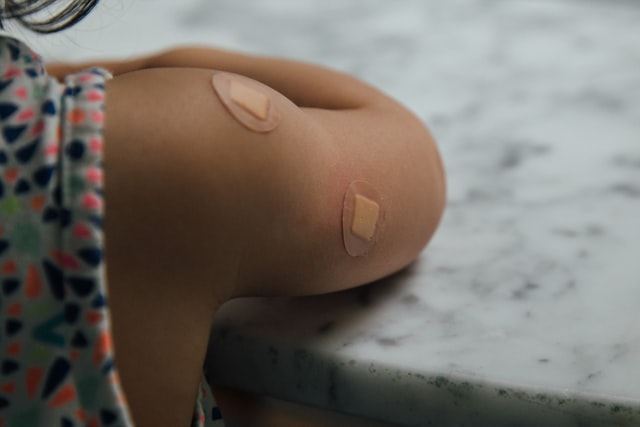Children and adolescents in Flanders remained "exceptionally well" vaccinated in 2020, with more pregnant women also getting vaccinations, concluded a new study on general vaccination coverage in Flanders.
The vaccination coverage study looked into the vaccination of target groups against measles, diphtheria, influenza or HPV, among others. In 2020, the study focused on toddlers, adolescents, mothers who have recently given birth, health professionals and people who work with children.
The study does not concern coronavirus vaccinations, as most of the data were collected before the start of the Covid-19 vaccination campaign.
"The Flemish Vaccination Rate Study again shows positive figures despite the coronavirus crisis," Flemish Health Minister Wouter Beke said. "This study shows the results for all age groups and vaccines and confirms our strong vaccination uptake."
De Vlaamse vaccinatiegraadstudie toont ondanks de coronacrisis ook deze keer positieve cijfers. Deze studie toont de resultaten van alle leeftijdsgroepen en vaccins. Onze sterke vaccinatietraditie wordt wederom bevestigd. @ZorgVlaanderen https://t.co/Qqal4uATol
— Wouter Beke (@wbeke) March 8, 2022
The coverage of the recommended free vaccines for young children, such as against polio, whooping cough and measles remained stable with results between 92.9% and 96.1%, almost identical to the 2016 figures.
A significant increase for the recommended (but not free) rotavirus vaccine was also reported: the figure rose from 89.7% in 2016 to 92.4% in 2020.
Adolescents born in 2007 also had a high vaccination rate: 92.6% had been vaccinated against diphtheria, tetanus, whooping cough and polio, the same result as in 2016. A slight increase for both doses of the measles, mumps and rubella vaccine was also found.
In general, vaccination willingness is very high in Flanders, said study supervisor Kirsten Maertens (UAntwerpen). "Only 4.2% of parents of incompletely vaccinated young children indicated a deliberate refusal to have them vaccinated. Parents of adolescents mainly cited practical reasons for non-vaccination, such as postponement due to the pandemic."
Are adults also sufficiently vaccinated?
Among adults, pregnant women are advised to get vaccinated against influenza and whooping cough. Among new mothers who have just given birth, there is a "striking increase in vaccination coverage," the scientists concluded, with 85% for whooping cough compared to 69.3% in 2016.
For influenza, it was up from 47.2% in 2016 to 62.3%. "Partners of women who have recently given birth are also significantly more likely to be vaccinated against whooping cough," Maertens said.
"The vaccination rates against whooping cough and influenza for pregnant women are exceptionally high for this target group. Flanders has one of the highest vaccination rates worldwide," she said.
Related News
- Child vaccination rate in Flanders three times higher than rest of Belgium
- 'Fewer antibodies': Brussels pushes residents to get flu shot this winter
Additionally, vaccinations against influenza are also increasing significantly among healthcare workers: vaccination rates rose by about 30% in both residential care centres and hospitals. In hospitals, 84.6% of staff indicated that they had been vaccinated. In residential care centres, the figure is 78.3%. "The increase is attributed to good vaccination campaigns, but also, remarkably, to media attention due to the coronavirus pandemic."
This high flu vaccination rate, however, was not found among people working in the childcare sector. In 2020, 39.6% of those working child day-care were vaccinated against influenza. For childminders, this rate was even lower, at 31.9%.
"Among health professionals, we also see that the efforts to inform them and to motivate them for flu vaccination are paying off and are translating into rising vaccination rates," said Maertens.

